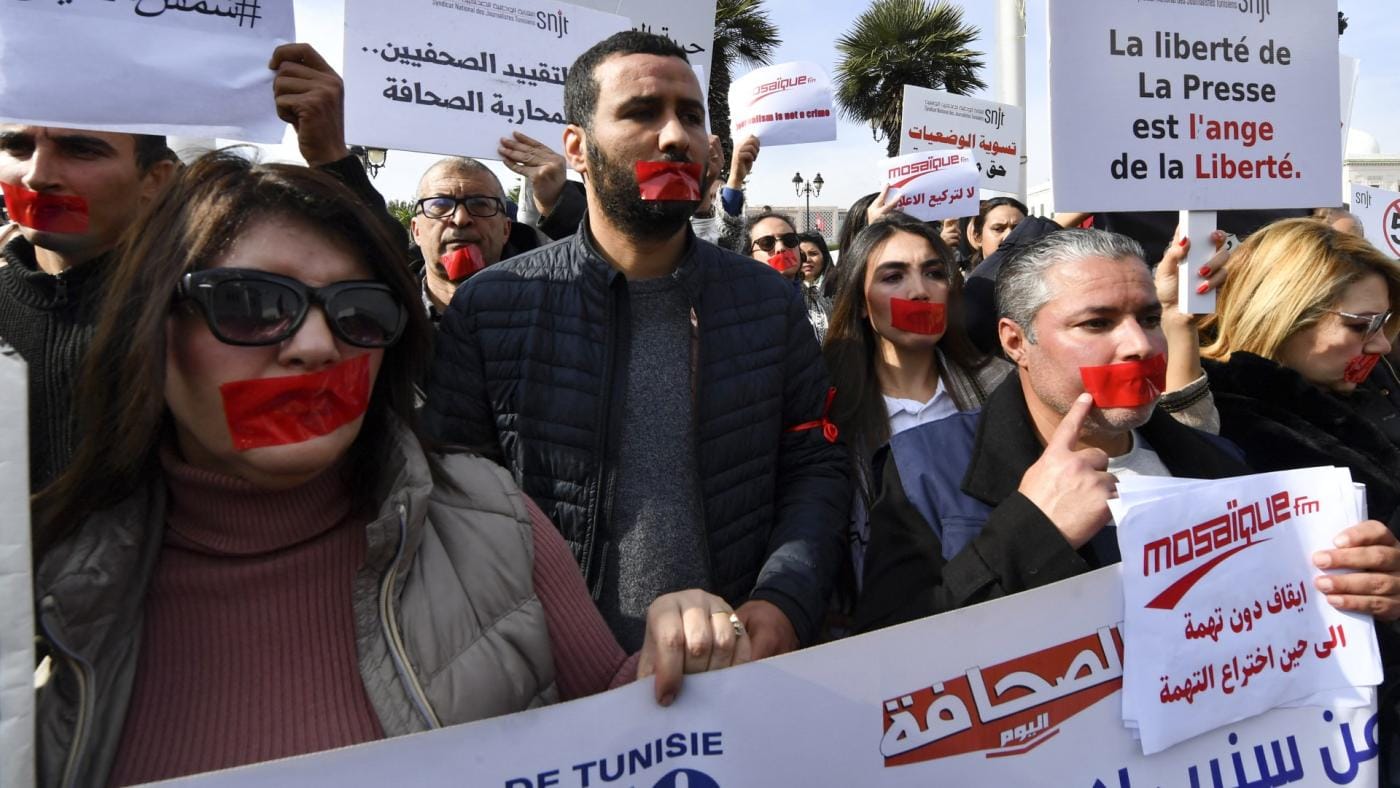Tunisia: UN Human Rights Chief calls on authorities to stop restricting media freedoms and criminalizing independent journalism
GENEVA (23 June 2023) – UN High Commissioner for Human Rights Volker Türk on Friday expressed deep concern at the increasing restrictions on the right to freedom of expression and press freedom in Tunisia, noting that vague legislation is being used to criminalize independent journalism and stifle criticism of the authorities.
“It is troubling to see Tunisia, a country that once held so much hope, regressing and losing the human rights gains of the last decade,” said Türk.
“The crackdown earlier this year against judges, politicians, labour leaders, businesspeople and civil society actors has now spread to target independent journalists, who are increasingly being harassed and stopped from doing their work,” he said. “I urge Tunisia to change course.”
Over the last three months, the Tunisian authorities have on five occasions used vaguely worded legislation to question, arrest and convict six journalists. This includes security and counter-terrorism legislation and the presidential decree Nº 2022-54 on cybercrimes, which contains ambiguous provisions that carry punitive fines and lengthy prison sentences for publishing or spreading alleged false news, information or rumours, and authorises law enforcement officers to access any information system or device, for inspection and collection of stored data.
In the majority of these cases, the restrictions imposed on these journalists’ freedom of expression do not appear to comply with the strict requirements under international human rights law, including the principles of necessity and proportionality.
Since July 2021, the UN Human Rights Office in Tunisia has documented 21 cases of alleged human rights violations against journalists, including prosecutions before civilian and military courts. There are grounds to believe that these prosecutions were initiated to counter public criticism against the President of the Republic or the authorities. Under international human rights law all public figures including heads of State may legitimately be subject to criticism.
On 15 June, the Parliament Bureau decided to ban journalists from covering the parliamentary committee meetings. On 17 June, a judge banned media from covering two cases of alleged “conspiracy against State security affairs” in which dozens of people have been prosecuted and detained since mid-February.
“These decisions undermine the principle of transparency in public affairs. People have the right to be informed and to do so, journalists must be able to do their job without any undue restriction,” said the High Commissioner.
“Silencing the voices of journalists, in a concerted effort, undermines the crucial role of independent media, with a corrosive effect on society as a whole,” he said.
The High Commissioner called on the Tunisian authorities to respect due process and fair trial standards in all judicial proceedings, cease trying civilians before military courts and release all those arbitrarily detained, including any person detained for exercising their right to seek, receive and impart information.





